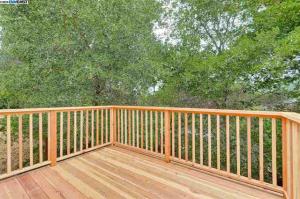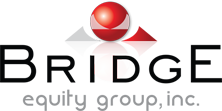![]() Trust deed investing refers to private persons lending money that is secured by real property. Also commonly known as “private money lending”, it is a relatively low-risk investment strategy that can super-charge your investment portfolio. Managing your risk and ultimately having a profitable outcome is dependent upon selecting the right team with experience, integrity and a proven track record. If done correctly, your loan will be secured by a lien on the property itself and substantial equity.
Trust deed investing refers to private persons lending money that is secured by real property. Also commonly known as “private money lending”, it is a relatively low-risk investment strategy that can super-charge your investment portfolio. Managing your risk and ultimately having a profitable outcome is dependent upon selecting the right team with experience, integrity and a proven track record. If done correctly, your loan will be secured by a lien on the property itself and substantial equity.
At Bridge Equity Group, we use hard money, private money and our own cash to purchase properties and fund construction. In order to protect our lender’s money, we do not borrow more than 75% of “after repair value” (ARV) AFTER REPAIR VALUE. By adhering to the 75% of ARV rule, we protect our lender’s position with substantial equity in the properties they are lending against. In addition, a lien is placed on the property at close of escrow., so that loans are secured at all times. Points are generally paid upfront (at time of close), and accumulated interest is paid at time of resale. Projects are generally 3-6 months in length, which means your money can be turned 3-4 times annually.
 There are many ways to find the funds for lending, and we will cover a few of them now. The most obvious source of money for lending is from an individual’s current stock/bond portfolio. This is a great way to diversify some of your portfolio in to passive real estate investments. Others successfully use their self-directed IRA or 401K accounts to do private money lending, And yet another source of funds is to take out a low interest “Home Equity Line of Credit” (HELOC) on your primary residence, using an arbitrage strategy to borrow at a very low interest rate and loan at a much higher rate. In fact, this last method is how banks operate and become so large and powerful. However you find the funds, this can be a very profitable business for you too.
There are many ways to find the funds for lending, and we will cover a few of them now. The most obvious source of money for lending is from an individual’s current stock/bond portfolio. This is a great way to diversify some of your portfolio in to passive real estate investments. Others successfully use their self-directed IRA or 401K accounts to do private money lending, And yet another source of funds is to take out a low interest “Home Equity Line of Credit” (HELOC) on your primary residence, using an arbitrage strategy to borrow at a very low interest rate and loan at a much higher rate. In fact, this last method is how banks operate and become so large and powerful. However you find the funds, this can be a very profitable business for you too.
Due to the short-term nature of private money loans, lenders are paid handsomely. This is particularly true when compared to the risk/reward of the stock market and other mainstream investments. Again, the key to your success is to pick a team with integrity, experience and a proven track record. These are all qualities that you can count on from Bridge Equity Group. If you are curious about terms, please contact us to learn what we can do for you!
Frequently Asked Questions
The money will be used to purchase a specific residential property at “below market value“ and/or finance the rehab of a residential property. Loans and accrued interest are paid back upon sale of the property, which is typically 3-6 months.
First, we almost always buy properties at below market prices, which means there is equity in the property when purchased. We will never finance more than 75% of the after repair value, which means there is always margin in the deal even if the market declines. Bridge Equity protects and pays its lenders the agreed upon terms, even if we lose money on a deal (that has only happened once). IF a lender were to not be paid per the terms of our agreement, they could foreclose on the property and either keep or resell it to cover their principal and interest owed. Nobody has ever had to foreclose on a loan to us and we intend to keep it that way.
Sure, if you like, you can visit any time to see what the property condition is before, during and after remodel. We are completely transparent in our model and operations.
When a loan is funded, we provide a promissory note that defines all the terms of the loan, including the total principal amount and the interest rate. In addition, a deed of trust is provided to the lender (you) and the escrow/title company, who is responsible for placing the lien on the property at close of escrow. The deed of trust is a legal document that defines the principal amount of the loan and the property in which the loan is being secured.
The standard length of our promissory note is a one-year term. Due to the 3-6 month length of projects, loans are generally paid off in a much shorter timeframe than the one-year term (no pre-payment penalty). Loans and interest are always paid off when the project is completed and sold.




